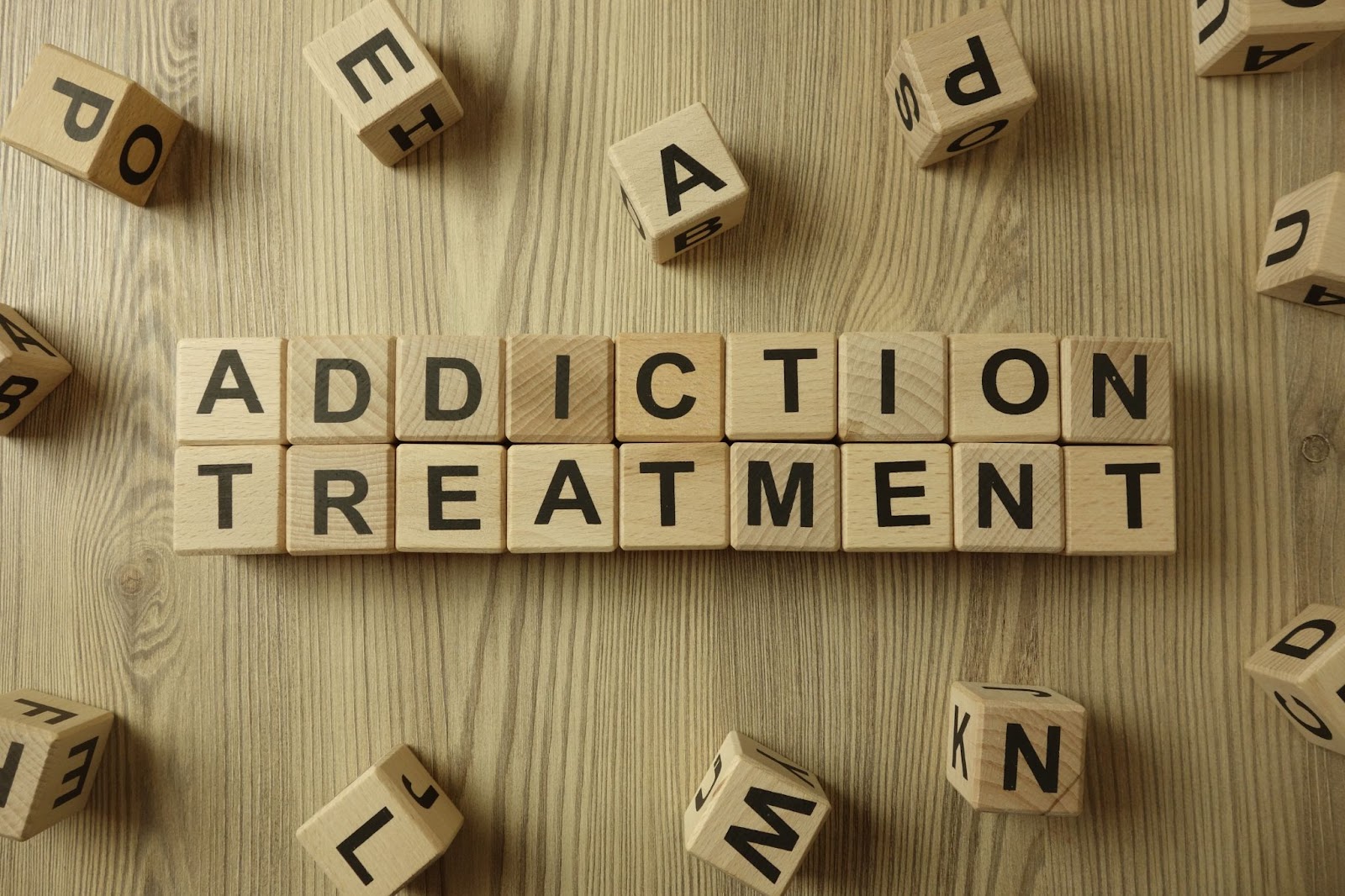Addiction is a complex and often relentless struggle that affects millions of lives worldwide. While effective for many, traditional treatments don’t always provide the breakthroughs needed for long-term recovery.
This has led to a surge in innovation within the field, with researchers and clinicians exploring new frontiers to combat addiction more effectively.
In this blog, we’ll delve into some of the most innovative addiction treatments that are changing the landscape of recovery. Join us as we uncover the exciting possibilities these innovative treatments present for overcoming addiction and fostering lasting recovery.
Medication-assisted treatments
Let’s start by understanding what medication-assisted treatment really is. Essentially, it combines two essential elements: medication and therapy. It addresses substance use disorders, whether it be an addiction to opioids, alcohol, or even nicotine, by using specific medications alongside comprehensive counseling and behavioral therapies.
So, what are these medications, and how do they work? For opioid addiction, there are three primary FDA-approved medications commonly used in MAT: methadone, buprenorphine, and naltrexone. Each of these medications targets different aspects of addiction and has unique benefits.
Methadone
Methadone, considered the gold standard for opioid addiction treatment, acts by binding to the same receptors in the brain that are targeted by drugs like heroin or oxycodone. The difference is that it provides a stable and controlled dose, reducing cravings and withdrawal symptoms. It’s generally administered in specialized clinics under close medical supervision.
Buprenorphine
On the other hand, buprenorphine works similarly but has some advantages. Not only does it relieve withdrawal symptoms, but it also blocks the effects of other opioids. Buprenorphine is available as a tablet or a film that dissolves under the tongue, making it more convenient as a doctor can prescribe it, making it a real game-changer.
Naltrexone
Lastly, naltrexone takes a different approach by blocking the opioid receptors altogether. It effectively prevents any opioid, whether from drugs or medications, from having any effect on the brain. This medication comes in a pill or a monthly injection, allowing flexibility for patients to choose what suits them best.
Here’s the amazing part: when medication and therapy are combined, the results truly speak for themselves.
Studies have shown that MAT reduces overdose deaths, helps patients stay in treatment, and leads to better outcomes in overall health and quality of life. It’s like having a double defense against addiction, addressing both the physical and psychological aspects of the disease.
The therapy component of MAT is crucial as it helps individuals develop coping strategies, address underlying issues, and make positive lifestyle changes. It also provides essential support during recovery, creating a framework for long-term success.

Digital and mobile health interventions
Now, I want to talk about something truly exciting and groundbreaking in addiction treatments: digital and mobile health interventions. Can you believe it? Our trusty smartphones and gadgets are now playing a pivotal role in combating addiction. It’s like having a pocket-sized superhero in the palm of our hands.
From helping people realize their addictive behaviors to providing ongoing support and motivation, these interventions have the potential to change the game entirely.
Let’s start with the first step – recognizing addiction. Some people may not even be aware that their behaviors are veering toward addiction. That’s where digital and mobile health interventions emerge, swooping in to raise awareness.
Picture this: an app that tracks your daily habits and offers personalized feedback. It will alert you when you’re engaging in addictive patterns, gently nudging you to reflect on your actions. It’s like having your very own addiction detective right in your pocket!
But it doesn’t stop there, my friend. These interventions go beyond simple awareness. They offer a range of therapeutic tools and techniques to help manage cravings and reinforce positive behaviors.
For instance, imagine an app that provides guided breathing exercises or relaxation techniques during those tough moments. It can be a game-changer when you’re grappling with the overwhelming desire for a substance. Who would have thought that your phone would become your serene sanctuary?
Now, let’s talk about the power of peer support. We all know that a strong support system is crucial during recovery. Digital and mobile health interventions recognize this and have come up with brilliant ways to connect individuals who may be going through similar struggles.
These platforms allow for online group meetings, discussion forums, and even one-on-one support from recovery coaches. It’s like having a 24/7 support group right at your fingertips!
You may be wondering, “Are these interventions effective?”
Well, my friend, the research paints a promising picture. Studies have shown that incorporating digital and mobile health interventions into addiction treatment leads to improved outcomes in terms of reduced substance use, increased abstinence rates, and enhanced overall well-being. We’re talking about a revolution in how we battle addiction!
But let’s not forget the human touch, my friend. These interventions are not meant to replace traditional face-to-face therapies but rather supplement them. Think of it as a dynamic duo – technology working hand-in-hand with healthcare professionals to offer comprehensive support. It’s the best of both worlds!
Brain stimulation therapies: TMS therapy
Transcranial Magnetic Stimulation (TMS) therapy is a non-invasive brain stimulation technique that has shown significant promise in the field of addiction treatment and recovery.
By targeting specific areas of the brain associated with addictive behaviors, TMS plays a crucial role in modifying the neural pathways that contribute to substance dependence.
How TMS works
TMS therapy involves placing an electromagnetic coil against the scalp near the forehead. This coil generates brief magnetic pulses, which pass through the skull and induce small electrical currents in the targeted brain regions.
Depending on the frequency of the stimulation, these currents have the power to activate or inhibit neuronal activity. For addiction treatment, TMS is typically used to reduce activity in areas of the brain that are overactive in addicted individuals, such as those involved in craving and compulsive behavior.
Effectiveness in addiction treatment
Research indicates that TMS effectively reduces cravings and decreases the likelihood of relapse. One of the key benefits of TMS in addiction treatment is its ability to address the neurological aspects of addiction directly.
Unlike traditional therapies that solely focus on the psychological components, TMS works on the brain’s wiring — helping to restore normal function and potentially making it easier for individuals to respond to conventional treatments like cognitive-behavioral therapy.
Integration with other treatments
While TMS is an effective tool for reducing cravings and interrupting the cycle of addiction, it is most effective when used as part of a comprehensive treatment plan that includes behavioral therapies, counseling, and support groups.
This integrated approach ensures that both the neurological and psychological aspects of addiction are addressed, offering the best chance for recovery.
Try TMS therapy at Brain Health Center
If you or someone you love is searching for effective and innovative treatments for addiction, consider the potential of Transcranial Magnetic Stimulation (TMS) at Brain Health Center.
We are dedicated to utilizing TMS to create personalized treatment plans that address both the neurological and psychological components of addiction. Our team is here to support you throughout your recovery journey.
Don’t miss this opportunity to explore a transformative approach to addiction treatment. Contact Brain Health Center today to learn more about TMS therapy and schedule your consultation.

